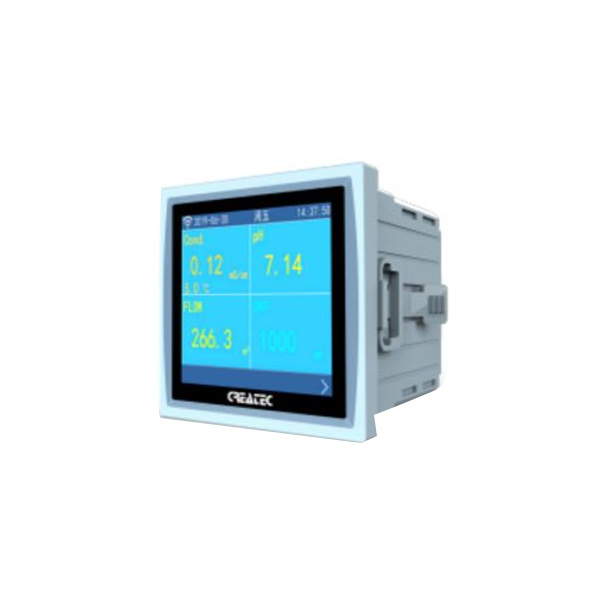Exploring the Role of Internet of Things Instruments in the Healthcare Sector
2025-07-10
The Internet of Things (IoT) instruments are revolutionizing various sectors, and the healthcare industry is no exception. These devices enable the connectivity and communication of medical equipment and patient monitoring systems, facilitating a more integrated and efficient healthcare delivery model. In the realm of medical devices, IoT instruments encompass a wide array of tools, from wearable
The Internet of Things (IoT) instruments are revolutionizing various sectors, and the healthcare industry is no exception. These devices enable the connectivity and communication of medical equipment and patient monitoring systems, facilitating a more integrated and efficient healthcare delivery model. In the realm of medical devices, IoT instruments encompass a wide array of tools, from wearable health monitors to smart diagnostic devices, all designed to enhance patient care and streamline operations.
One of the primary advantages of IoT instruments in healthcare is their ability to enable real-time monitoring of patients. For instance, wearable devices can track vital signs such as heart rate, blood pressure, and glucose levels, sending this critical data to healthcare providers instantaneously. This real-time data access allows clinicians to make informed decisions quickly, improving patient outcomes and potentially reducing hospital readmission rates.
Additionally, IoT instruments contribute significantly to the automation of healthcare processes. By connecting various medical devices to a centralized system, healthcare facilities can optimize workflows, manage inventory more effectively, and reduce human error. For instance, smart infusion pumps can automatically adjust medication dosages based on real-time patient data, enhancing safety and treatment efficacy.
Data security and privacy are paramount in the healthcare industry, especially when dealing with sensitive patient information. IoT instruments must implement robust security protocols to protect data integrity and confidentiality. Healthcare organizations need to ensure that their IoT devices comply with regulations and best practices for cybersecurity, including encryption and secure data transmission methods.
Furthermore, the integration of IoT instruments fosters better patient engagement. Patients can actively participate in their own care by using smart devices that provide them with feedback on their health status. This empowerment encourages individuals to take ownership of their health, leading to more proactive management of chronic conditions and improved adherence to treatment plans.
In conclusion, the emergence of Internet of Things instruments in healthcare is reshaping how medical professionals interact with patients and manage care delivery. By harnessing the power of connectivity, these devices facilitate real-time monitoring, automate processes, and enhance patient engagement. As technology continues to evolve, the potential applications of IoT instruments in the healthcare sector will undoubtedly expand, paving the way for a more efficient and patient-centered approach to medical care.
One of the primary advantages of IoT instruments in healthcare is their ability to enable real-time monitoring of patients. For instance, wearable devices can track vital signs such as heart rate, blood pressure, and glucose levels, sending this critical data to healthcare providers instantaneously. This real-time data access allows clinicians to make informed decisions quickly, improving patient outcomes and potentially reducing hospital readmission rates.
Additionally, IoT instruments contribute significantly to the automation of healthcare processes. By connecting various medical devices to a centralized system, healthcare facilities can optimize workflows, manage inventory more effectively, and reduce human error. For instance, smart infusion pumps can automatically adjust medication dosages based on real-time patient data, enhancing safety and treatment efficacy.
Data security and privacy are paramount in the healthcare industry, especially when dealing with sensitive patient information. IoT instruments must implement robust security protocols to protect data integrity and confidentiality. Healthcare organizations need to ensure that their IoT devices comply with regulations and best practices for cybersecurity, including encryption and secure data transmission methods.
Furthermore, the integration of IoT instruments fosters better patient engagement. Patients can actively participate in their own care by using smart devices that provide them with feedback on their health status. This empowerment encourages individuals to take ownership of their health, leading to more proactive management of chronic conditions and improved adherence to treatment plans.
In conclusion, the emergence of Internet of Things instruments in healthcare is reshaping how medical professionals interact with patients and manage care delivery. By harnessing the power of connectivity, these devices facilitate real-time monitoring, automate processes, and enhance patient engagement. As technology continues to evolve, the potential applications of IoT instruments in the healthcare sector will undoubtedly expand, paving the way for a more efficient and patient-centered approach to medical care.
Internet of Things Instrument
RELATED NEWS
Exploring the Role of Internet of Things Instruments in the Healthcare Sector
2025-07-10
The Internet of Things (IoT) instruments are revolutionizing various sectors, and the healthcare industry is no exception. These devices enable the connectivity and communication of medical equipment and patient monitoring systems, facilitating a more integrated and efficient healthcare delivery model. In the realm of medical devices, IoT instruments encompass a wide array of tools, from wearable
2025-07-03
Enhancing Water Quality Assessment: The Role of Electromagnetic Flow Meters in Improving Efficiency and Accuracy
Table of Contents
1. Introduction to Water Quality Assessment
2. Importance of Accurate Water Quality Assessment
3. Understanding Electromagnetic Flow Meters
4. How Electromagnetic Flow Meters Work
5. Benefits of Using Electromagnetic Flow Meters for Water Quality A
2025-06-26
---
In the pharmaceutical and healthcare sectors, maintaining high water quality is crucial for both product efficacy and regulatory compliance. One of the most effective tools for measuring the flow of water in these environments is the Sanitary Digital Paddle Wheel Flow Sensor. This type of sensor is specifically designed to meet the stringent requirements of the pharmaceutical industry, ensurin





